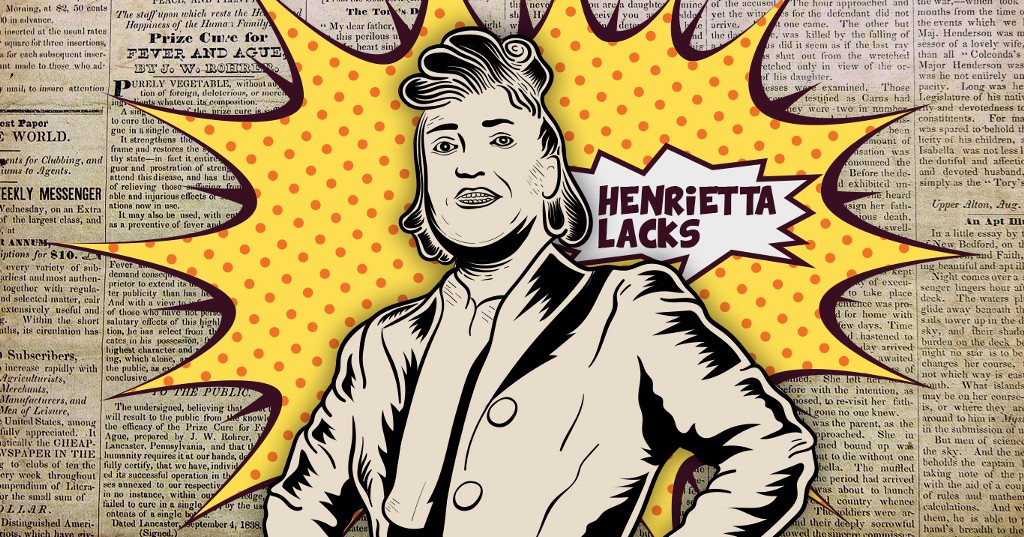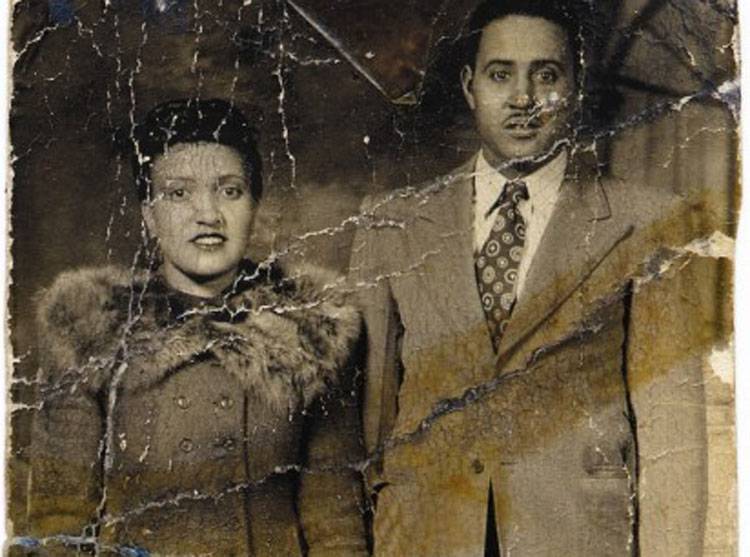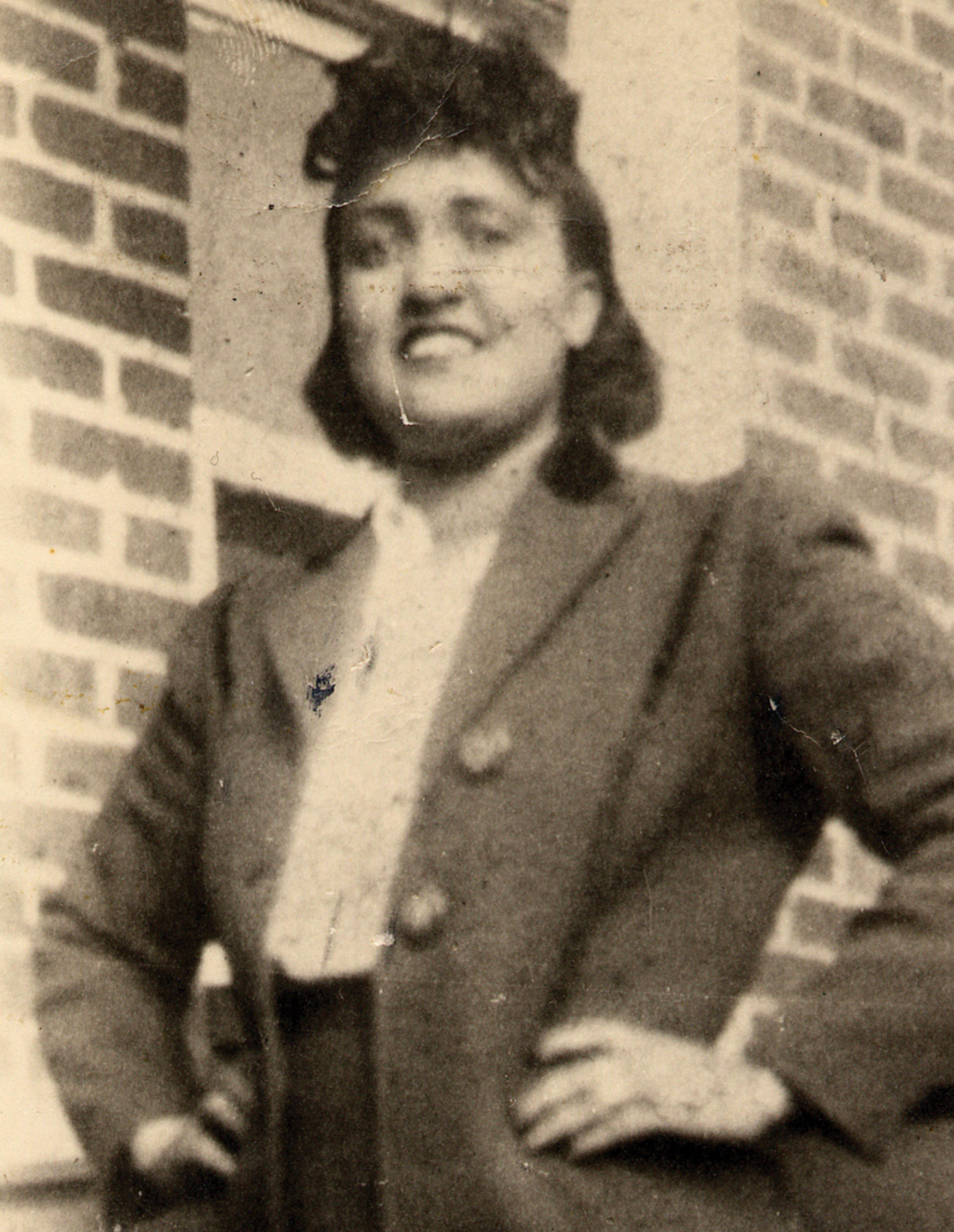Meet The Woman Who Was Immortal Without Ever Knowing It

Our Unsung Heroes series brings history’s unknown badasses out of the footnotes and into the spotlight.
What if, long after your death, parts of you—I mean, literally parts of your body—continued to live on for generations, saving countless lives? That’s the story of Henrietta Lacks, an African-American mother of five whose harvested cancer cells have changed modern medical research forever. And yet, outside a smattering of nonfiction readers and public radio fans, her name and contributions to science remain largely unknown.
Born in 1920 to a family of poor tobacco farmers in rural Virginia, Henrietta moved to Baltimore with her husband during World War II. After feeling a “knot in her womb,” Henrietta first thought she was pregnant — and she was. But following the birth of her fifth child, the knot was discovered to be a cervical cancer tumor, and an unusual one at that. Soft, shiny, purple and the size of a quarter, the tumor was biopsied at Johns Hopkins hospital, where some of the cells were harvested — without Henrietta’s knowledge or consent — and given to cancer researcher Dr. George Gey.

Dr. Gey had been trying for years to grow human cells outside the body. In order to get large enough samples for his research, he used cells harvested from many tumors biopsied at Johns Hopkins. The problem was, those cells always died — except for Henrietta Lacks’. Not only did her cells not die, they kept growing. And growing and growing and growing, like the Energizer bunny of cancer cells.
While Henrietta herself died of cervical cancer at the young age of 31, Dr. Gey reproduced hundreds of thousands of her tumor cells, calling them HeLa cells after their donor. Those cells were later used in labs across the country to study everything from cancer and AIDS to measles, mumps and rabies. They were crucial in the development of the polio vaccine and chemotherapy drugs, which saved millions of lives.
…she was shocked to find there were living pieces of her mother still existing in the world.
Not only were HeLa cells the first cells ever cloned (long before Dolly the sheep), they were also the first human cells ever in space. That’s right — before we sent any astronauts to the moon, HeLa cells were shot into outer space to test the effects of zero gravity on the human body. Neil Armstrong should be be writing Henrietta a thank you letter right now.

Despite all of the advancements her cells made for modern science, Henrietta’s family didn’t even know that parts of her body were being tested around the world until more than 20 years after her death. When researchers reached out to Henrietta’s daughter Deborah — who had lost her mother when she was only a baby— she was shocked to find out there were still living pieces of her mother existing in the world. I mean, wouldn’t you be?
…as author Rachel Skloot put it, “There isn’t a single person in the world really who hasn’t benefited from these cells.”
It wasn’t until 2013, after German researchers published the genome of HeLa cells without the permission of the Lacks family, that Henrietta’s children began to be included in her legacy. In an agreement with the National Institutes of Health, the Lacks family was granted limited control over access to the cell’s DNA code and promised acknowledgement in scientific papers. Additionally, two members of Henrietta’s family have joined a six-person committee that regulates access to the HeLa cell code.
After years of obscurity, Henrietta’s story is finally making its way not only into the history books, but also into the hearts of the public. In 2010, Rachel Skloot’s beautifully-told biography “The Immortal Life Of Henrietta Lacks” topped the best-seller list while Radiolab’s sweet-voiced Robert Krulwich got her story out to millions of NPR nerds like myself.
In a world where old white guys too often get all the credit, let’s shift the spotlight to the little-known black woman who made modern medicine possible — even if she didn’t know it. So if you’ve never been diagnosed with polio or you know someone who’s beat cancer with the help of chemo, take minute to give Henrietta Lacks a round of applause. Because as author Rachel Skloot put it, “There isn’t a single person in the world really who hasn’t benefited from these cells.”
